This post may contain affiliate links. Please read our policy page.
Using organic cotton in urban library spaces enhances air quality, boosts comfort, and supports sustainability. I’ve found that its natural, hypoallergenic properties create a cozy environment, encouraging patrons to linger longer. The aesthetic appeal and design versatility add warmth, while organic cotton’s durability guarantees long-term use, making it a cost-effective choice. Plus, it inspires eco-conscious behavior among visitors, cultivating a culture of sustainability. Let’s explore how these benefits can transform your library into a thriving community hub.
Enhanced Air Quality in Library Environments
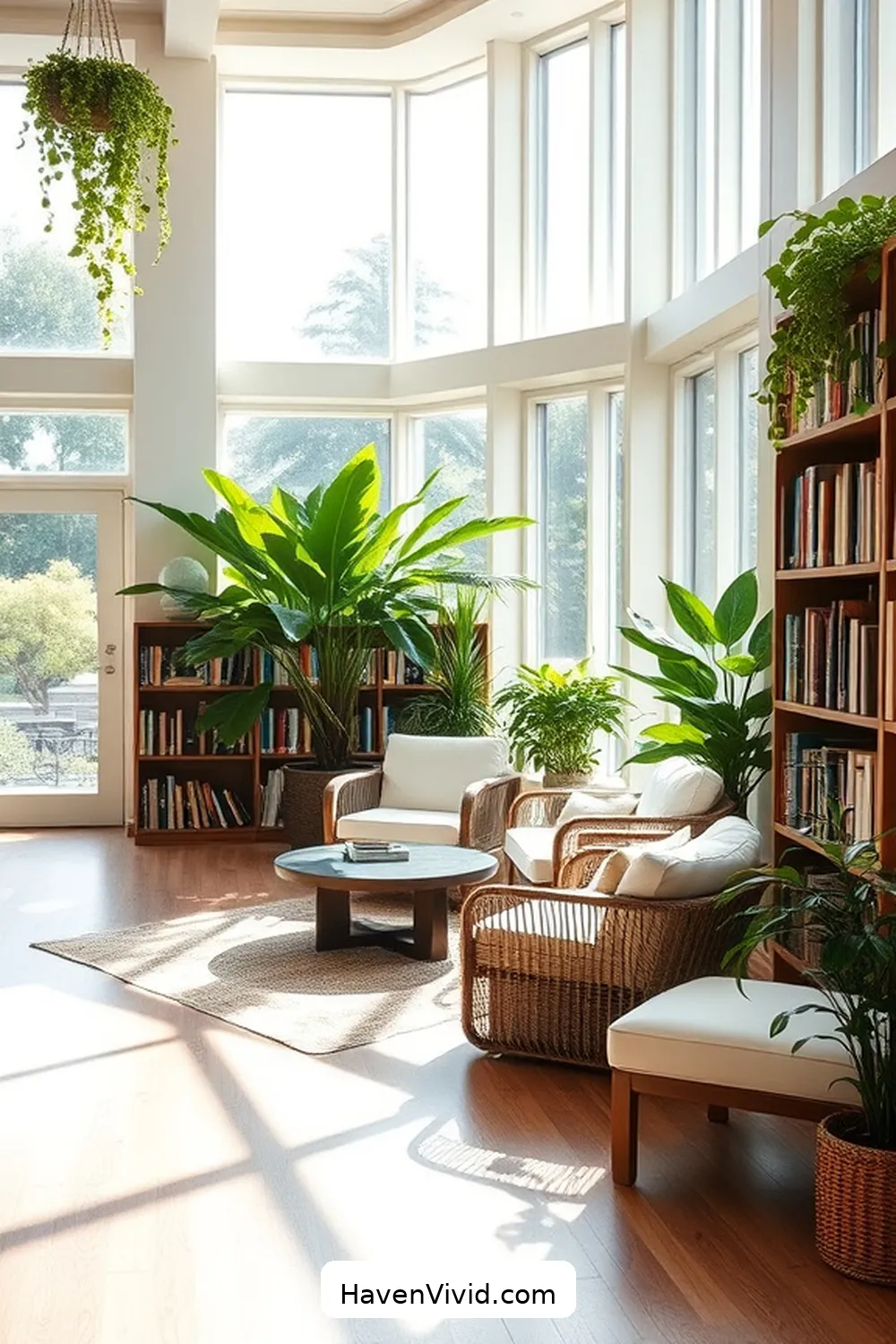
When you step into a library, the last thing you want is to be greeted by stale air that stifles your ability to focus.
Organic cotton can greatly enhance air quality in library environments. Unlike conventional textiles, organic cotton is free from harmful chemicals and synthetic additives that can release volatile organic compounds (VOCs).
This means that when you incorporate organic cotton into your library’s furnishings and decor, you’re not only promoting a healthier atmosphere but also reducing allergens and irritants. Improved air quality can lead to increased concentration and productivity among patrons.
Recommended Items
Discover our top picks for products and equipment that enhance the charm of organic cotton in library spaces—happy exploring!
Comfort and Softness for Library Patrons

Comfort is essential in creating an inviting library atmosphere, and organic cotton excels in providing that soft, cozy feel that patrons appreciate. When I walk into a library adorned with organic cotton furnishings, I can’t help but feel a sense of calm and relaxation. It’s not just about aesthetics; it’s about the tactile experience that enhances my time spent reading or studying.
| Aspect | Impact on Patrons |
|---|---|
| Softness | Cozy environment |
| Breathability | Comfort during long visits |
| Natural fibers | Non-irritating to skin |
| Durability | Long-lasting comfort |
| Eco-friendly | Feel good about choices |
Aesthetic Appeal and Design Versatility

While I appreciate the comfort of organic cotton, its aesthetic appeal and design versatility truly enhance library spaces. The natural textures and colors of organic cotton bring warmth and a welcoming atmosphere, making libraries more inviting.
I’ve noticed how various patterns and styles can seamlessly blend with different design themes, from modern to rustic. This adaptability allows libraries to create unique areas that cater to diverse patron needs, whether it’s reading nooks or collaborative spaces.
Additionally, organic cotton’s durability guarantees that these aesthetic choices stand the test of time, maintaining their beauty even with heavy use.
Task Overview for Organic Cotton Decor
Sustainability and Environmental Impact

In addition to enhancing aesthetic appeal, the use of organic cotton in library spaces considerably contributes to sustainability and reduces environmental impact.
By choosing organic cotton, we support farming practices that avoid harmful pesticides and synthetic fertilizers, preserving soil health and biodiversity. This eco-friendly choice also means less water consumption, as organic cotton generally requires fewer resources to grow.
Choosing organic cotton supports sustainable farming, reduces water consumption, and preserves our planet’s soil health and biodiversity.
Additionally, organic cotton is biodegradable, reducing landfill waste compared to synthetic materials. When libraries opt for organic textiles, they send a clear message about their commitment to environmental stewardship.
By creating spaces that prioritize sustainability, we’re not just improving our libraries; we’re also encouraging our communities to embrace eco-conscious practices.
Let’s make a positive impact, one organic cotton fabric at a time.
Hypoallergenic Properties of Organic Cotton

When it comes to creating a welcoming atmosphere in library spaces, the hypoallergenic properties of organic cotton stand out as a key advantage. I believe this feature can greatly enhance the comfort of our patrons, especially those with sensitivities.
Here’s why organic cotton is a smart choice:
- Reduced Allergens: It’s grown without synthetic pesticides or fertilizers, minimizing irritants in the environment.
- Breathability: The natural fibers allow for better air circulation, reducing moisture and preventing mold growth.
- Comfort: Soft and gentle on the skin, organic cotton encourages a more enjoyable experience for readers.
Durability and Longevity of Organic Materials

The durability and longevity of organic materials like cotton make them an excellent investment for library spaces. Unlike conventional fabrics, organic cotton can withstand daily wear and tear, ensuring that library seating and furnishings maintain their aesthetic appeal over time. Plus, organic cotton is resistant to fraying and fading, which is essential in high-traffic areas.
Here’s a quick comparison of organic cotton’s durability versus synthetic fabrics:
| Material | Durability |
|---|---|
| Organic Cotton | High |
| Synthetic | Moderate to Low |
Supporting Ethical Farming Practices
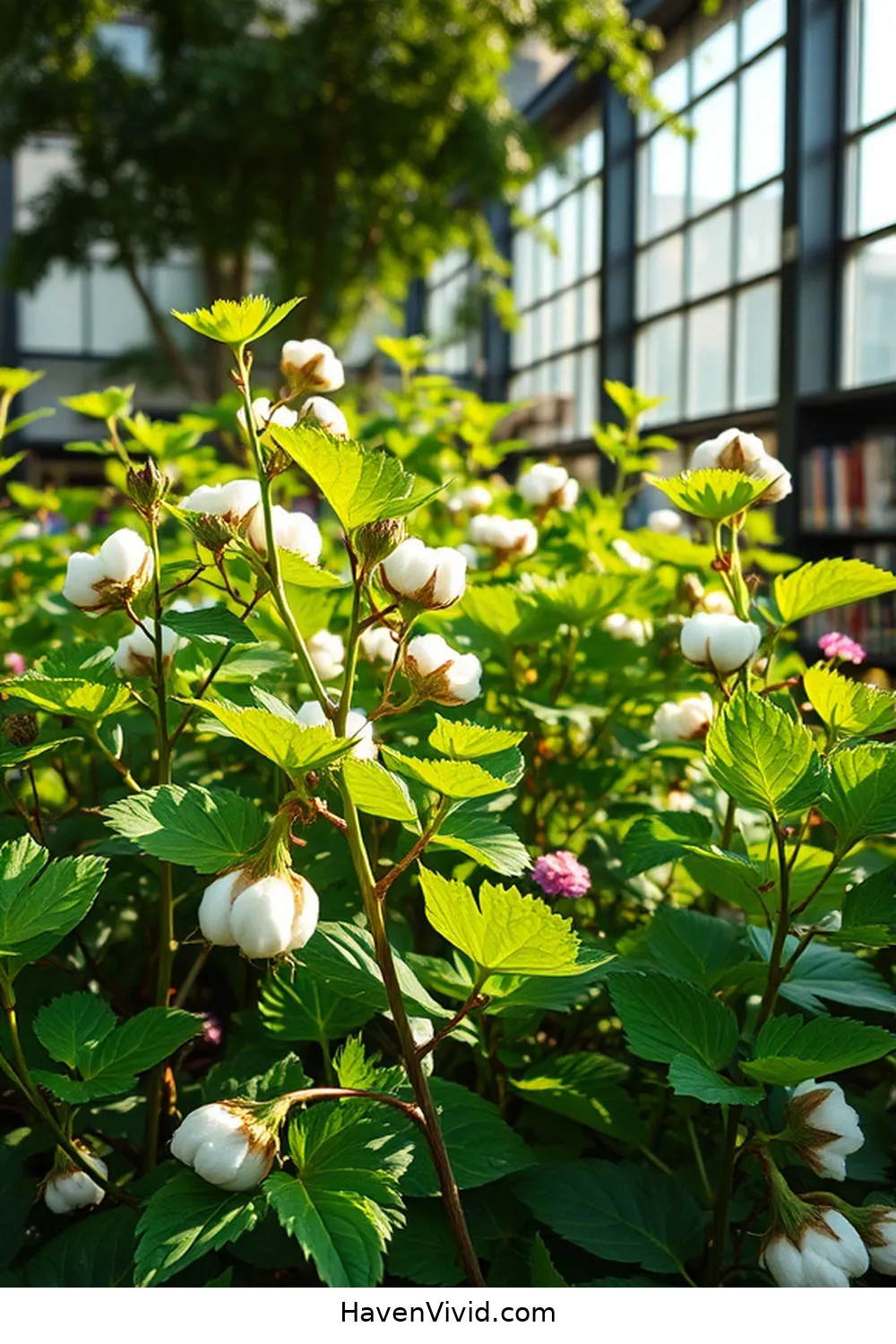
Choosing organic cotton not only enhances the durability of library spaces but also aligns with ethical farming practices that prioritize sustainability and social responsibility.
By opting for organic materials, we’re making a conscious choice that impacts both the environment and farming communities.
Here’s why supporting ethical farming matters:
- Fair Labor Practices: Organic cotton farming often guarantees fair wages and safe working conditions for farmers, promoting social equity.
- Biodiversity: Organic farming methods foster biodiversity, protecting ecosystems and encouraging the growth of various plant species.
- Reduced Chemical Use: By avoiding synthetic pesticides and fertilizers, organic cotton supports healthier soil and reduces harmful runoff into local water systems.
When we choose organic cotton for our libraries, we’re investing in a brighter, more ethical future for all.
Reducing Carbon Footprint in Urban Spaces
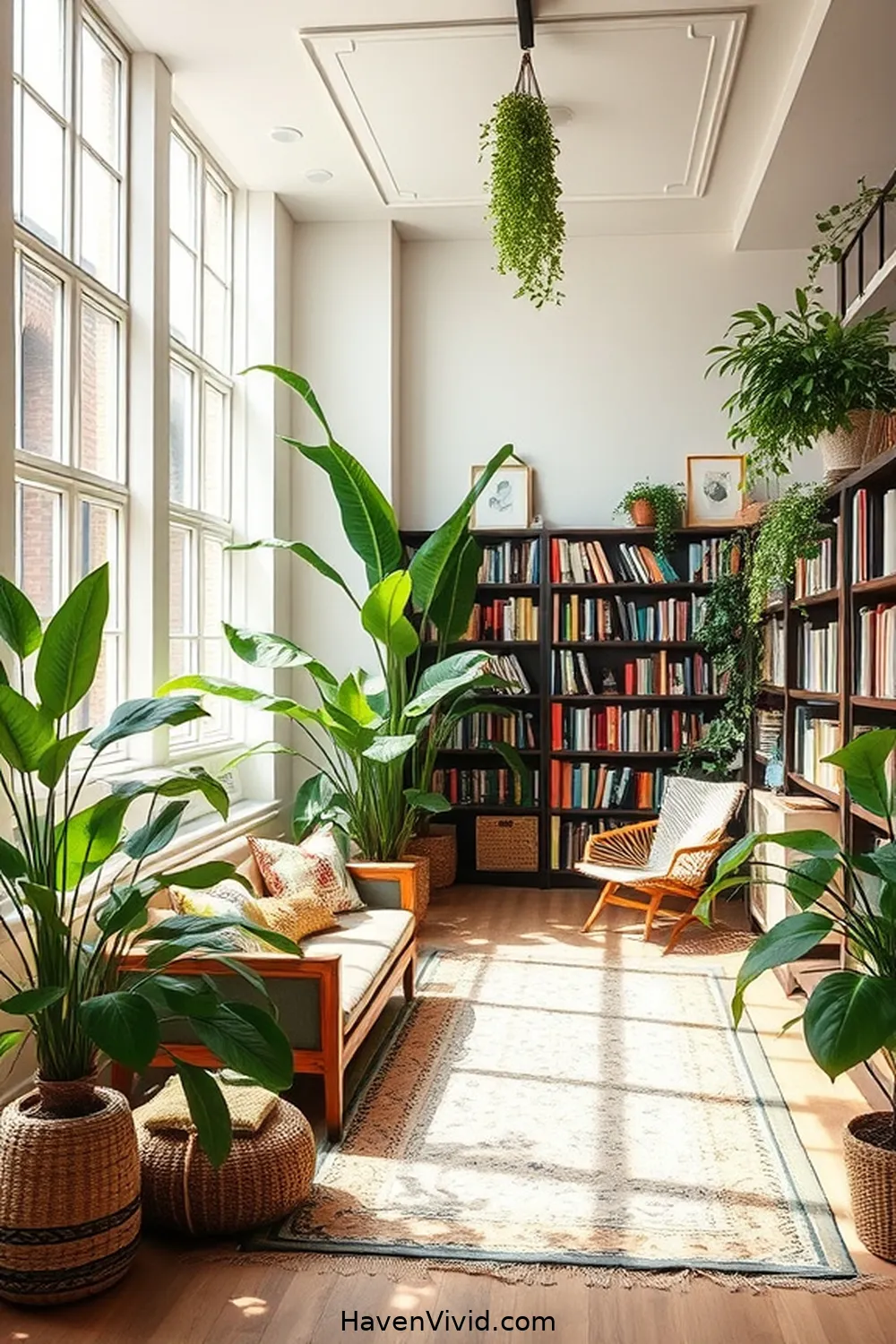
While many mightn’t realize it, selecting organic cotton for library spaces can greatly reduce our carbon footprint in urban environments. Organic cotton is grown without synthetic pesticides and fertilizers, which means it requires less energy-intensive processing. This not only lowers greenhouse gas emissions but also promotes healthier ecosystems.
By choosing organic materials, libraries can greatly contribute to sustainable practices. Additionally, organic cotton’s biodegradable nature means it won’t linger in landfills, further curbing carbon emissions associated with waste.
In urban areas, where pollution levels can be high, every choice counts. By integrating organic cotton into library furnishings and textiles, we’re making a conscious decision to foster a greener future. It’s a small change that leads to a more sustainable urban landscape we all can appreciate.
Versatility in Library Furnishings
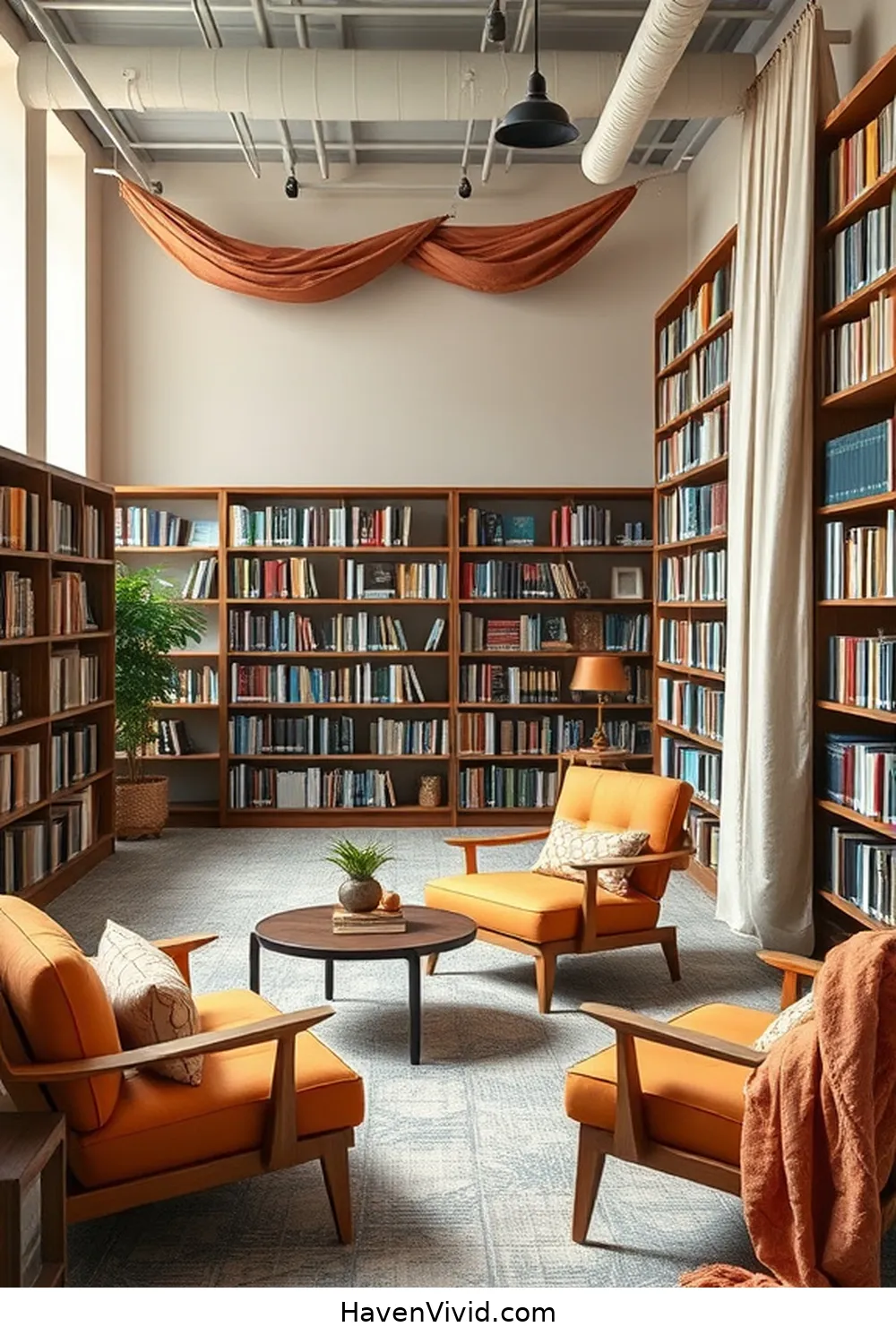
When exploring options for library furnishings, I find that organic cotton stands out due to its remarkable versatility. It seamlessly adapts to various design aesthetics and functional needs, making it an excellent choice for urban library spaces.
Here are a few key benefits:
- Diverse applications: From seating to curtains, organic cotton can be used in multiple furnishings, enhancing both comfort and style.
- Customizability: It’s available in a wide range of colors and patterns, allowing libraries to reflect their unique identity and create inviting spaces.
- Durability: Organic cotton is resilient, ensuring that furnishings withstand high usage while maintaining their appeal.
Improved Sound Absorption in Library Settings
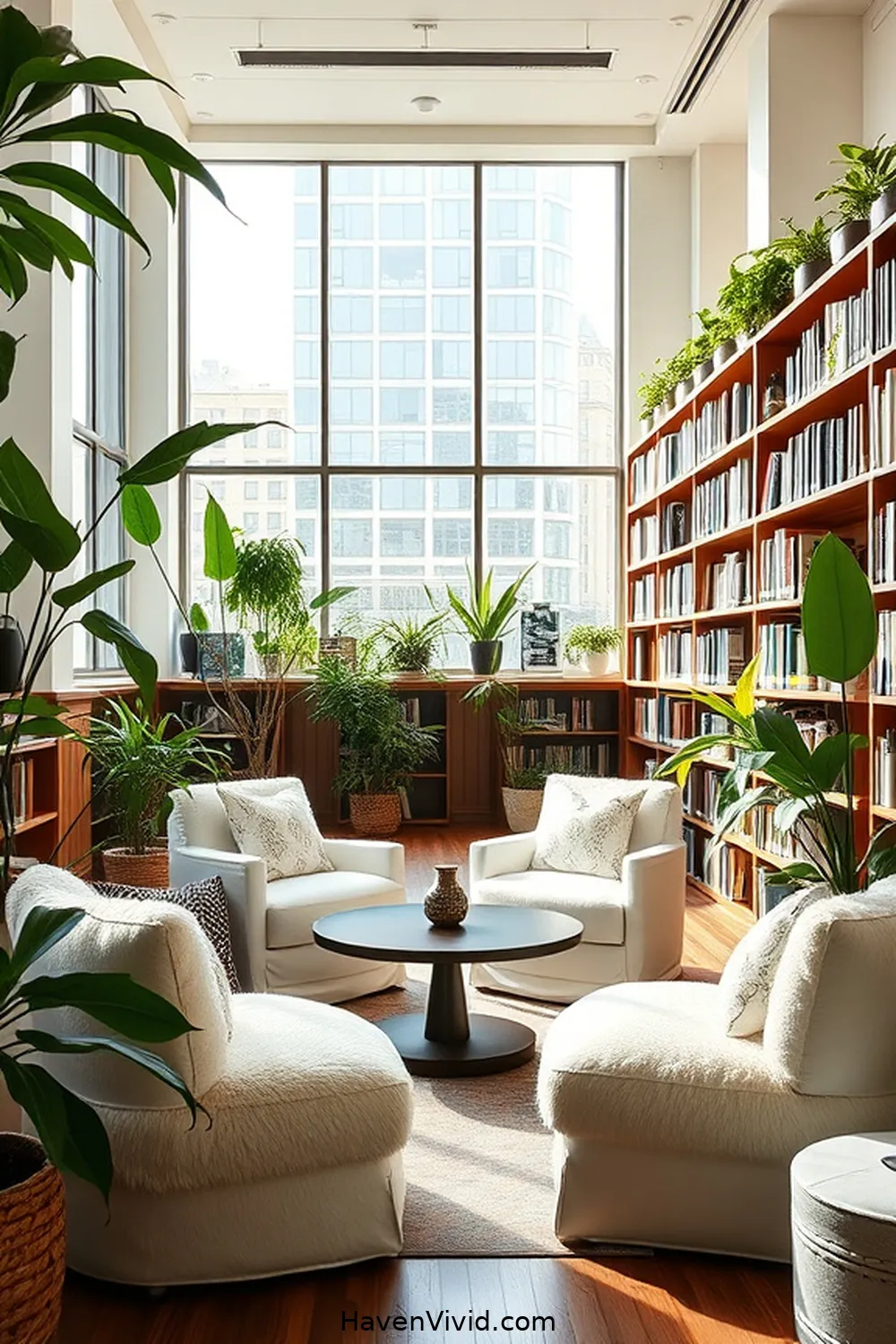
Incorporating organic cotton into library furnishings not only enhances aesthetic appeal but also improves sound absorption, creating a more tranquil environment for patrons.
I’ve noticed that the natural fibers of organic cotton effectively dampen noise, reducing echoes and background chatter. This is vital in a library where silence is golden.
When I sit on an organic cotton-upholstered chair or lean against a soft organic cotton cushion, I can focus better on my reading or studying.
Additionally, using organic materials aligns with sustainable practices, which many patrons appreciate.
Encouraging Eco-Conscious Behavior Among Patrons
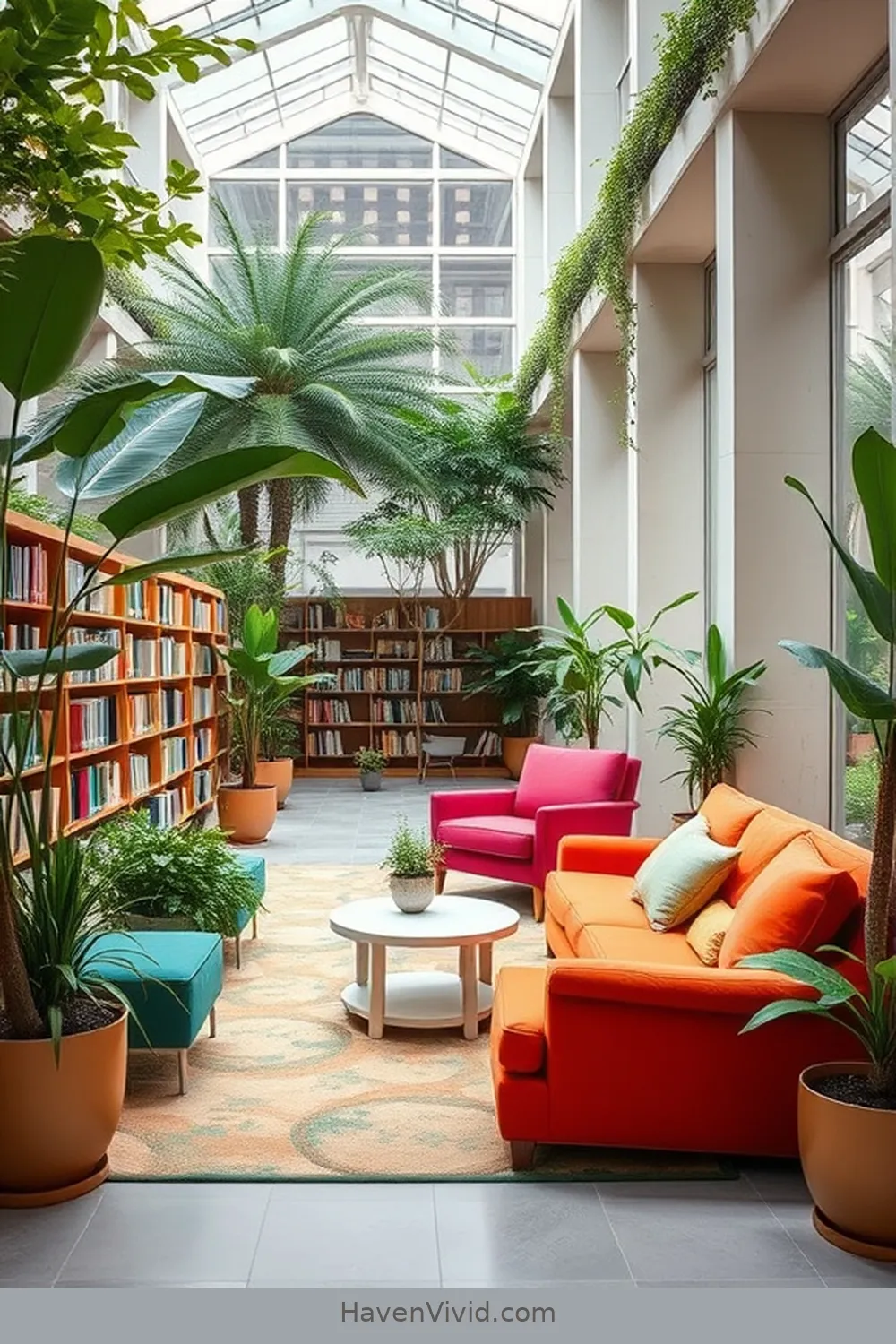
As I explore the library’s inviting atmosphere, I can’t help but notice how organic cotton furnishings serve as a catalyst for encouraging eco-conscious behavior among patrons.
The choice of sustainable materials subtly influences us, fostering a sense of responsibility toward our environment. Here are a few ways this impact manifests:
The use of sustainable materials inspires a deeper sense of environmental responsibility among library patrons.
- Awareness: Seeing organic cotton prompts conversations about sustainability and eco-friendly choices.
- Inspiration: Patrons often feel inspired to adopt greener practices in their own lives, from recycling to reducing plastic use.
- Commitment: The library becomes a space that cultivates a commitment to environmental stewardship, reinforcing the idea that small changes matter.
Positive Psychological Effects of Natural Materials
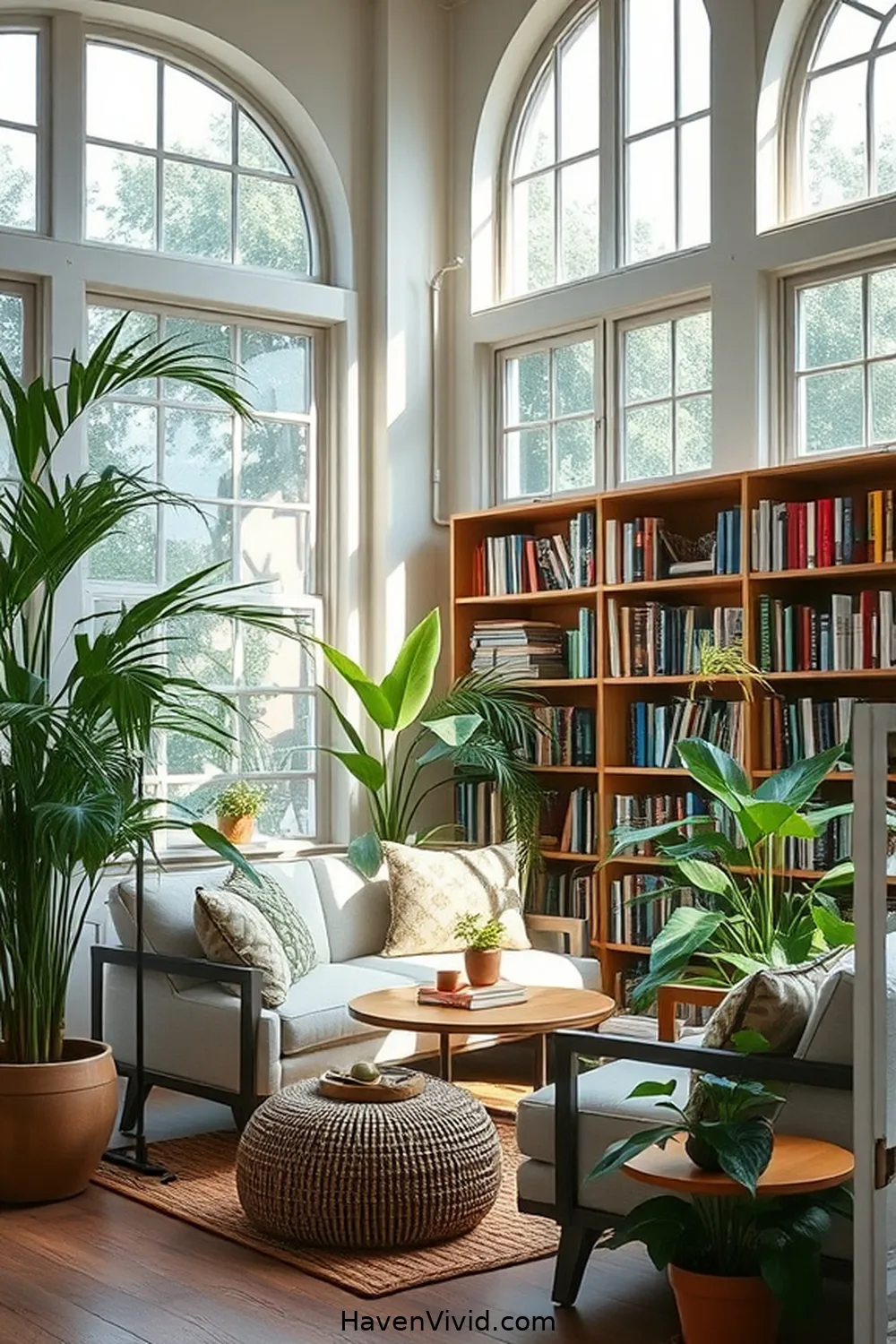
Although our surroundings often shape our emotions, the presence of natural materials like organic cotton in library spaces can profoundly enhance our psychological well-being.
When I walk into a library adorned with organic textiles, I immediately feel a sense of calm and connection to nature. Studies show that natural materials can reduce stress and anxiety, promoting a more peaceful environment for learning and exploration.
The softness and warmth of organic cotton invite patrons to linger longer, fostering creativity and focus. By incorporating these elements, libraries can cultivate spaces that not only look aesthetically pleasing but also support mental clarity and emotional health.
I believe that choosing organic cotton is a simple yet impactful way to transform our library experiences for the better.
Cost-Effectiveness in the Long Run

The choice of organic cotton goes beyond psychological benefits; it also proves to be cost-effective over time. While the initial investment may seem higher, the long-term savings and advantages are undeniable.
Choosing organic cotton offers long-term savings and benefits that outweigh initial costs, making it a wise investment.
Here’s why I believe organic cotton is a smart choice for urban library spaces:
- Durability: Organic cotton often lasts longer than conventional fabrics, requiring fewer replacements.
- Reduced Maintenance Costs: Its natural properties make it easier to clean, minimizing upkeep expenses.
- Health Benefits: Fewer chemicals mean fewer health-related issues, which can reduce potential healthcare costs for staff and visitors.
Investing in organic cotton isn’t just an ethical choice; it’s a financially savvy one, ensuring that we create a sustainable environment while keeping expenses manageable in the long run.











